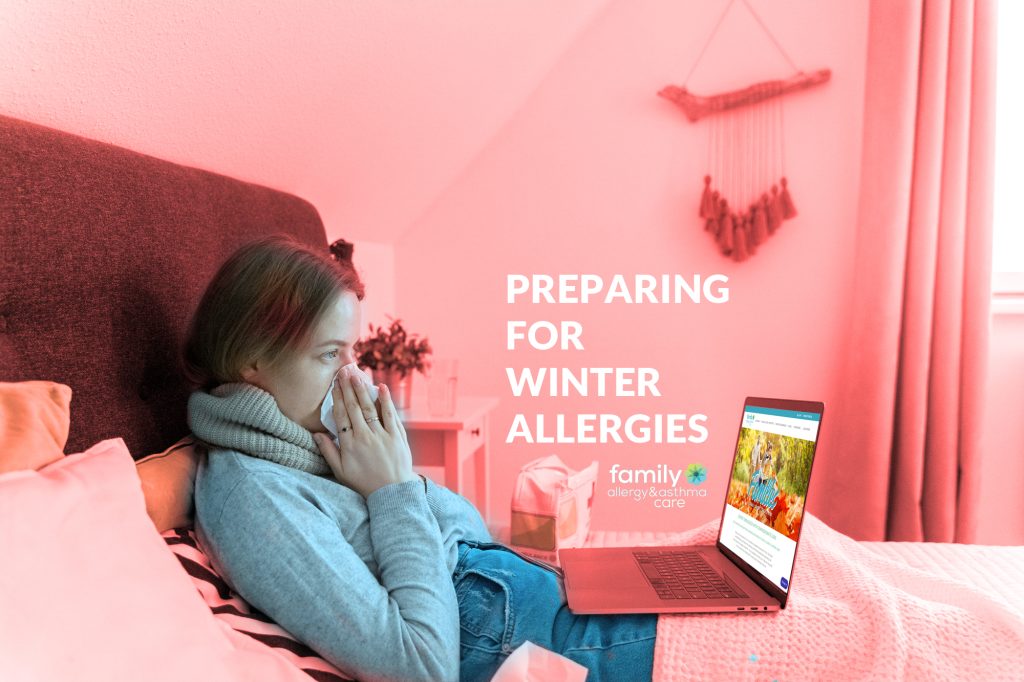Winter can be a challenging season for allergy sufferers
Unlike spring and summer with blooming flowers or pollen-filled air, allergens such as dust mites, mold, and pet dander thrive indoors during winter. Here are a few tips to help you prepare and manage your winter allergies effectively.
Understand Your Winter Allergy Triggers
Winter allergies are commonly caused by:
- Dust Mites – Microscopic pests that thrive in bedding, carpets, and upholstered furniture.
- Mold – Found in damp areas such as basements, bathrooms, and poorly ventilated spaces.
- Pet Dander – Tiny flakes of skin shed by cats, dogs, and other furry animals.
- Indoor Air Pollution – Dry air from heating systems can circulate allergens and irritate airways.
Create an Allergy-Proof Home
Your home should be a safe haven from allergens. Here’s how to keep it that way:
- Control Humidity – Set indoor humidity levels to deter dust mites and mold growth. Use a dehumidifier if necessary.
- Clean Regularly – Dust and vacuum often, using a vacuum cleaner with a HEPA filter to trap allergens. Don’t forget to clean hard-to-reach areas like under furniture.
- Wash Bedding Weekly – Use hot water to kill dust mites. Consider allergen-proof covers for pillows and mattresses.
- Fix Leaks and Ventilate – Repair any leaks promptly to prevent mold growth, and ensure good airflow in damp areas.
- Pet-Free Zones – Designate certain areas of your home, such as your bedroom, as pet-free zones to limit exposure to dander.
Prepare Your HVAC System
Winter’s dry air can irritate nasal passages, worsening allergy symptoms.
- Change Filters Regularly – Use high-efficiency filters and replace them as recommended.
- Clean Air Ducts – Hire a professional to clean ducts, especially if you notice a buildup of dust or mold.
- Use an Air Purifier – Consider investing in a HEPA air purifier for your most-used rooms to capture airborne allergens.
Stay Hydrated and Moisturized
Heating systems can circulate allergens if not properly maintained.
- Use a Saline Spray – Helps keep nasal passages moist and flush out allergens.
- Drink Water – Staying hydrated supports your body’s natural defenses.
- Try a Humidifier – If the air feels too dry, a humidifier can provide relief—but don’t overdo it, as too much moisture can encourage mold growth.
With preparation and proactive measures, winter doesn’t have to mean months of sneezing and discomfort. You can enjoy the season with fewer interruptions. Our board-certified allergists, experienced PAs and friendly office staff are here for you. Contact us today!




